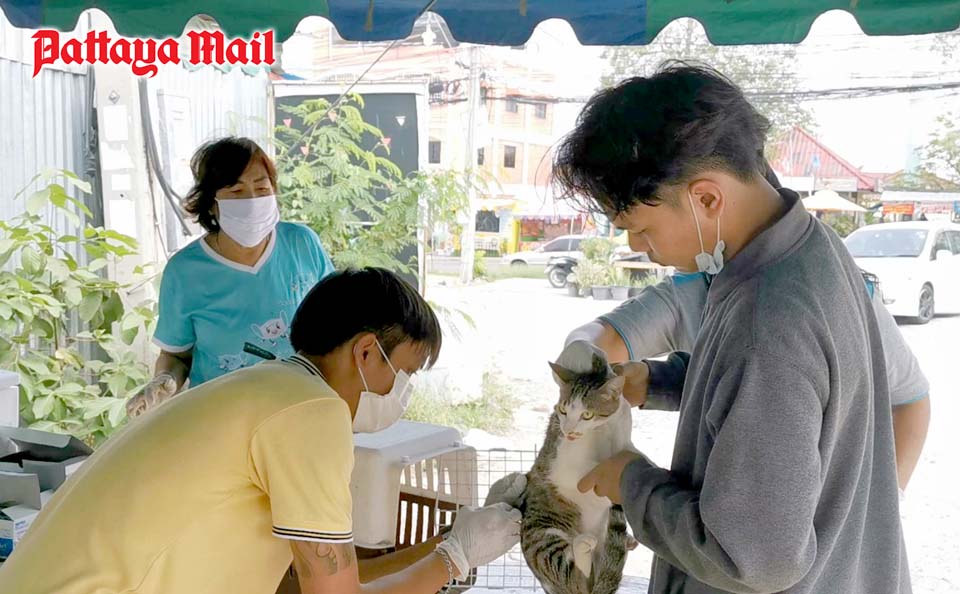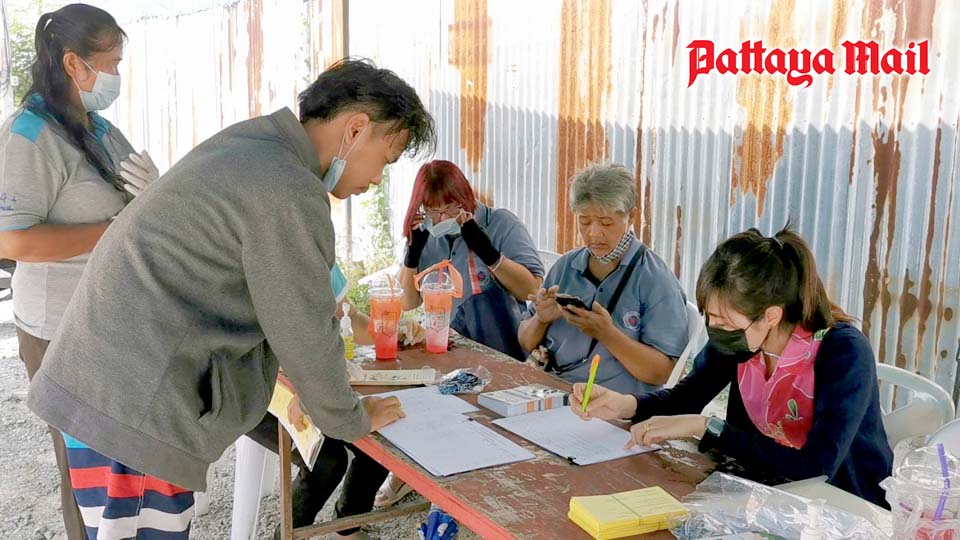
The summer months are the most dangerous months when pets are at risk of contracting the deadly rabies disease. Every summer, health departments all over Thailand are put on alert, sending teams out into the community to give rabies vaccinations to household cats and dogs.
The Nongprue health department provided free rabies vaccinations for cats and dogs June 14 at the Khao Noi Plaza market. Hundreds of pet owners brought out loved ones to get the lifesaving vaccines.
Those who could not bring in their pets were offered vaccines to take home to administer the shots themselves. The vaccine was packed in an opaque container filled with ice.
The vets on duty explained, “Rabies is a communicable disease transmitted to humans through the bite or scratch of rabid dogs and cats. It can also be transmitted through the saliva of infected animals entering the eyes, nose and mouth of humans.
“Rabies infects the central nervous system. After infection with rabies, at first there might not be any symptoms. Weeks or even months after a bite, rabies can cause general weakness or discomfort, fever, or headache. As the disease progresses, the person may experience delirium, abnormal behavior, hallucinations, hydrophobia (fear of water), and insomnia.

“If the infected human doesn’t get the proper shots to protect them after a bite or scratch, the symptoms will show after 15-60 days. In some cases, symptoms will show within ten days.”
The vets put out a grave warning saying, “There is no cure for rabies, and the infected person will die.
“Therefore, if you are bitten by a dog or cat, and no matter if it is rabid or not, one must take preventive medical measures.
“Thoroughly clean the wound with antiseptics, confine the animal, if possible, and immediately see a doctor who will most definitely administer a series post-exposure rabies vaccinations to prevent and protect the human from the infection.”
The vets also gave sound advice, “Rabies can be prevented by vaccinating pets, staying away from wildlife, and seeking medical care after potential exposures and before symptoms start.”
 |
 |
 |





